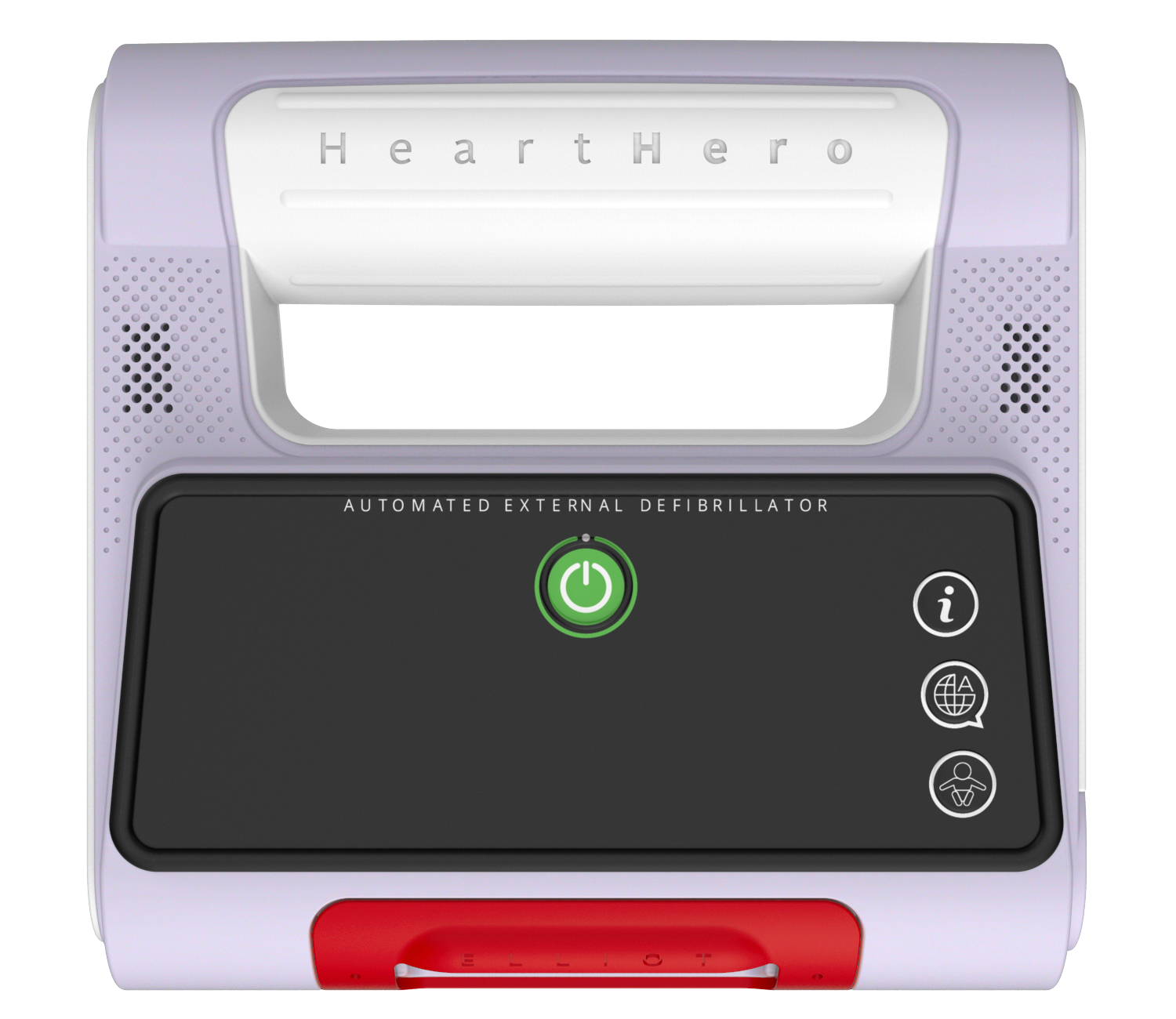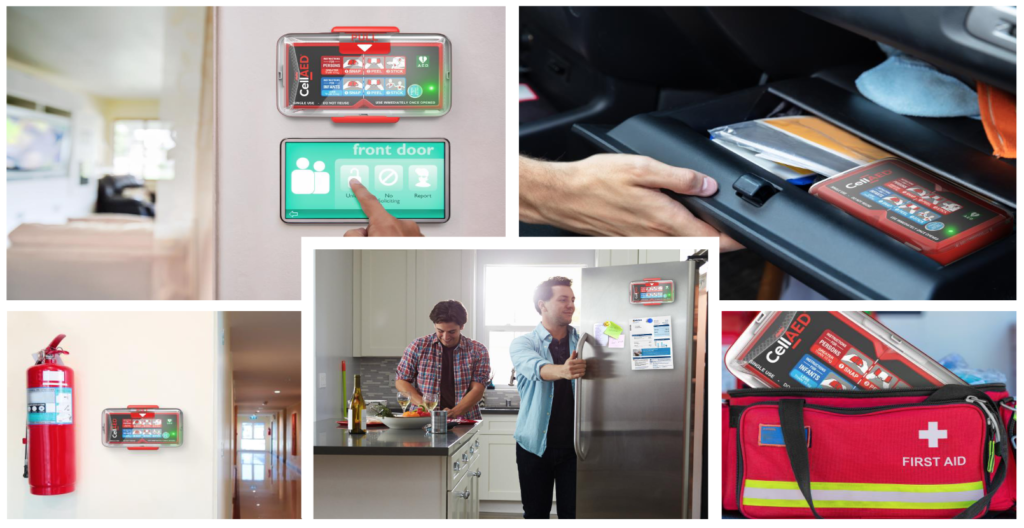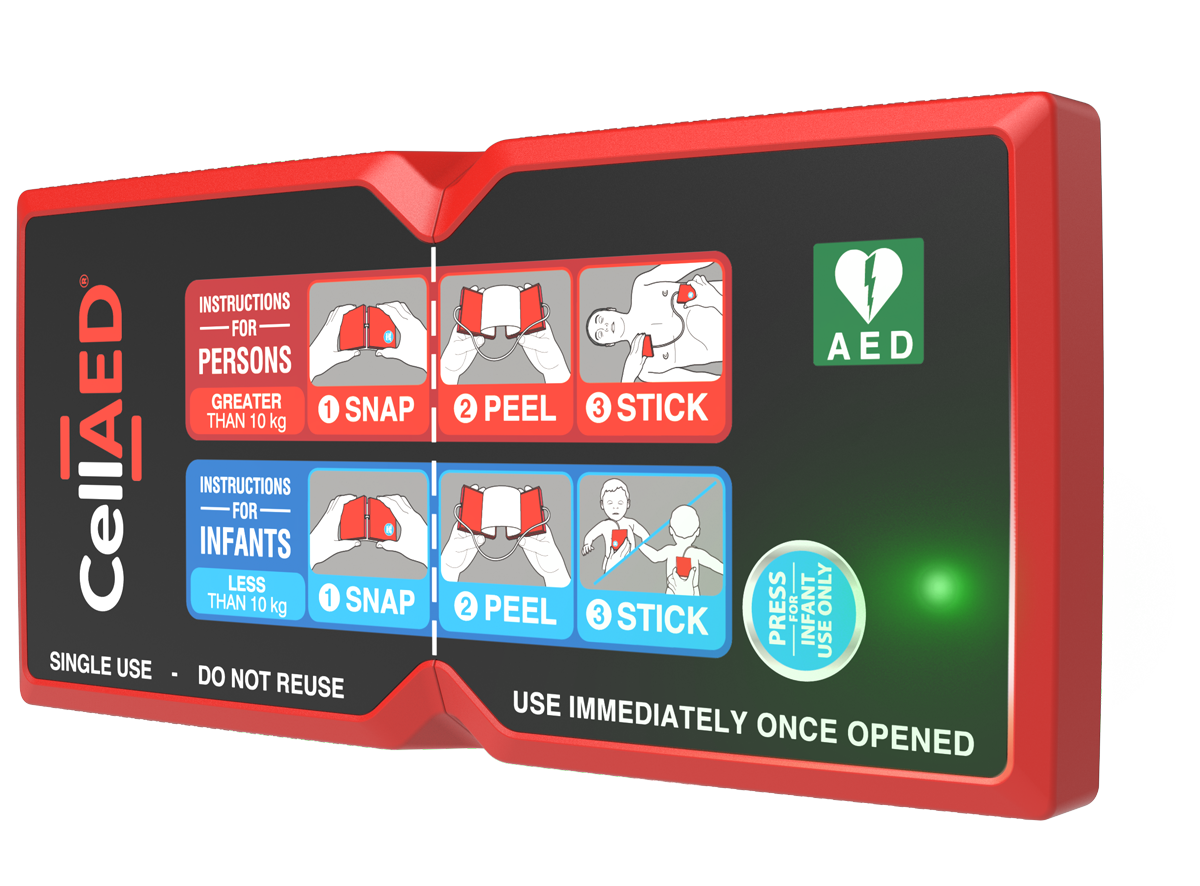If you had read the Business Leader article last Friday you might have been forgiven for thinking they were trying to pull an April Fools prank.

But no, the story is true and at last someone is producing a defibrillator that is targeted where it is needed most – in the home, and at a very tempting price. Around 80% of out of hospital cardiac arrests take place in a place of residence, yet to date, there has been no AED available for purchase that is within reach of your average household budget.
Retailers
A quick search will find you plenty of retailers selling automatic external defibrillators (AEDs) and in the UK the starting price seems to be around the £800 mark, quickly heading upwards for more advanced models. For that money, you will get one of the established brands i.e. Heartsine, Phillips, Zoll that is robust, tried and tested.
These units tend not to be aimed at the domestic market, but as “public access defibrillators” aka PADs – AEDs that are to be sited in public places and used by anyone, not just the owner or guardian. They perhaps reveal their heritage by the fact that usually they aren’t the most pleasing to the eye and I can’t see too many people having them at home in a prominent place, they are more likely to be shoved in a cupboard and forgotten about.
Elliot

One exception to the rule is the pretty cousin to the PAD – Elliott, the HeartHero AED that was released last year but is currently sold out in the UK. It’s an attractive unit and certainly ticks many of the required boxes for a home unit. However, whilst retailing at a tempting £495, which seriously undercuts the main rivals, it possibly isn’t quite cheap enough to attract the mass home market. If you want to know more about Elliot, we spoke to Gary Montague, the founder of HeartHero on the Life After Cardiac Arrest podcast about their device and his aims.
The new entrant – CellAED

The new device mentioned at the top of this page is from Australian company Rapid Response Revival Research, and is being sold under the brand name CellAED. It is designed to be compact, lightweight, always ready to go and have a one-event disposable use (up to 20 shocks).
Critically it was designed to be low cost so that it was something a regular household could afford. It has been announced with 2 options for purchase – a one off £199, or the CellAED for life, which has the same £199 initial purchase but an additional £9 per month for an ongoing support and replacement service (every 13 months or if the device is used).
It should be noted that the device only has a shelf life of 13 months, I’m guessing this is either because of the battery and/or the pads that are used to deliver any treatment and so this essentially makes the monthly fee £15.30 (£199/13). If you have a need for such a device over a limited time span e.g. expedition then this may be a good option, but if you’re looking to the long term the second option is the one to go for.
Obviously, the fees will mount up over the years that you subscribe and you will find yourself asking should I have purchased one of the other models with a higher entry price, but no subscription. However, all defibs have a lifespan including the battery and pads, and the replacement prices and frequency can be more than you might think. A typical PAD will need it’s battery and PADs changing every 2-5 years, and a battery can cost upwards of several hundred pounds, and pads from £50 – so these costs also need to be factored in.
Of course, the 13 month replacement cycle may also mean that you get further enhancements to the device, although as long as an AED does what it’s supposed to i.e. treat an SCA, maybe this won’t be a driver.

There’s more
This seems to be an emerging market (and about time), as there are also a couple of other contenders coming onto the market, although are not currently available.
The Avive Connect AED is a device from the USA that is currently undergoing FDA (The organisation responsible for ensuring the safety of medical equipment) testing and although not available for purchase it has set it’s stall out for delivery into the home market. It remains to be seen what price point it comes in at, and whether they have a subscription model but it looks a promising option.
Home grown
Closer to home, there is an initiative by the Driver First Assist organisation to develop a cheap (they quote around £220) AED that is made inconjunction with an existing manufacturer. The organisation is focused around improving safety for drivers on the road and related work places, so it remains to be seen whether their device will be appropriate for a residence. Currently there are few details on this device but the more low cost devices in the market place can only be a good thing.
Conclusion
So, as you can see the domestic AED market is starting to open up and it’s great to see the announcement of the pre-order option for the CellAED. With the existing Elliot AED and potentially 2 other low cost options coming in the near future there is actually going to be some choice for those looking to protect their families from an SCA.

After our first meet-up in February 2015, I realised I was not alone. It was the first time since my cardiac arrest the previous year that I had spoken face-to-face with someone who had experienced what I had. This was also true for my wife, who also happened to be my lifesaver. From that meet-up, the idea of SCA UK was born. Since then, we have achieved a considerable amount, primarily providing information, resources and support to others in a similar situation but also raising the profile of survivorship and the need for better post-discharge care. We are starting to get traction in this, and with the formation of the charity, I genuinely believe we have a bright future ahead and will make a significant difference in the lives of many who join our ranks.

